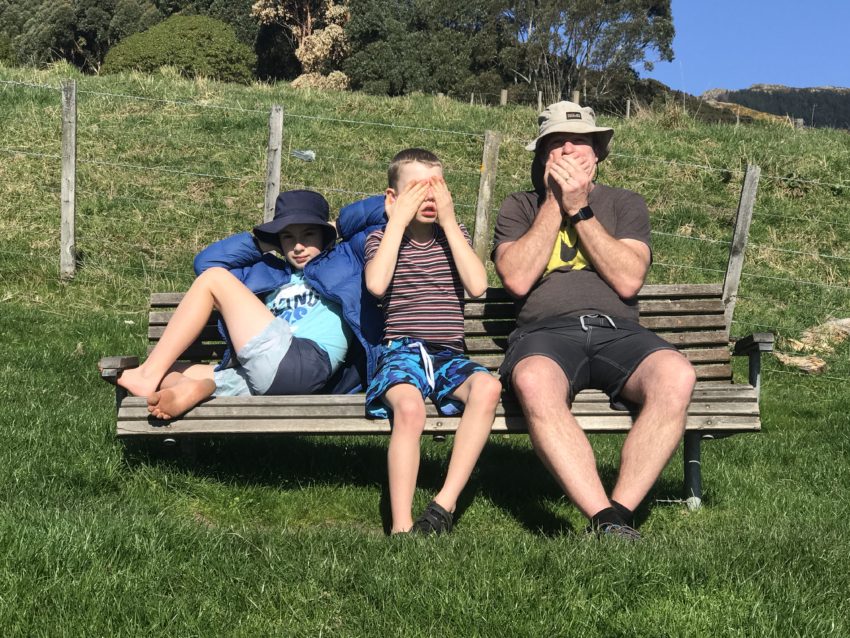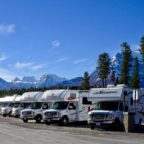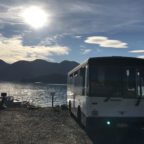Ever wanted to live in a small space?
Or to travel in a motor home or get ahead financially by going small? Unsure what it might be like to live smaller?
Wherever you live there are up and downs to it but if you’ve ever wondered what some of the pros and 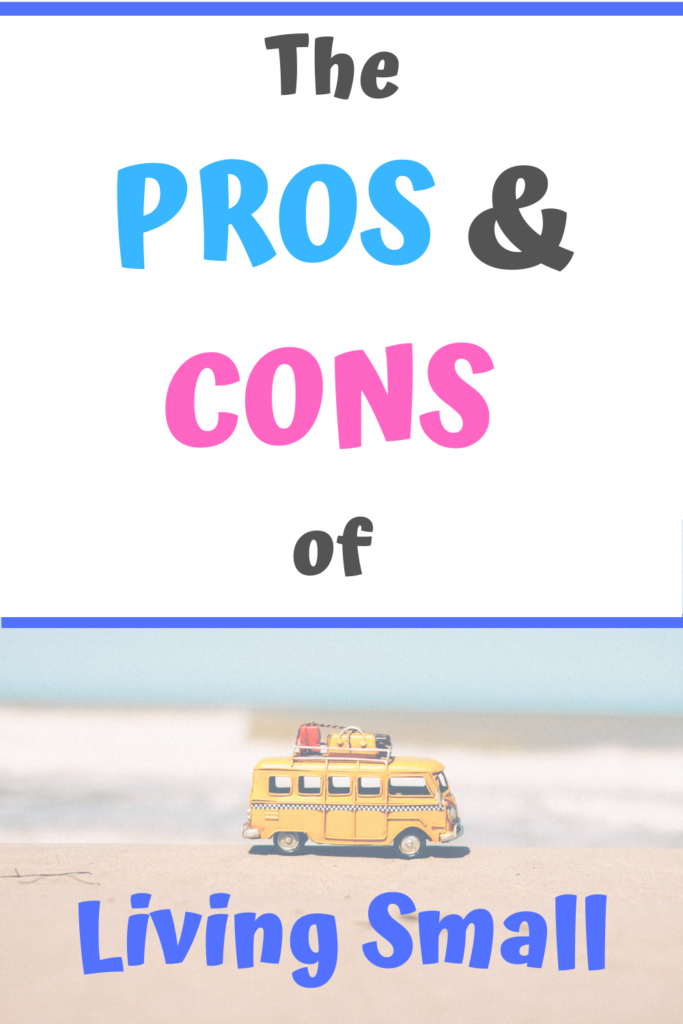 cons of living small are, this is a post for you.
cons of living small are, this is a post for you.
It contains what we experienced as a family of four living in our bus motor home full time for over a year as we travelled around New Zealand.
Living Space
PRO: Less area to manage
Living small minimised our needs and so too our costs plus the number of physical items around us. And living became simpler once we found a place for each thing we had kept.
Of course at first we packed in WAY too much stuff, not sure what would prove handy but, over time, items that got infrequent use were stored or given away.
Life gets too crowded and annoying when you have to shift things just to sit down.
Many items or spaces now have multiple uses in our bus and we’ve streamlined our systems to suit us.
Living small makes us de-clutter all the time and ask ourselves, ‘Do we really need or love this new item?’ before buying anything more.
We have a bag up the front that gets the items we decide to move on and weekly they head to a charity shop.
With avid readers on board, I’ve also found it so handy to have baskets with non-slip mats beneath them to store books or devices in.
Otherwise they seem to sprawl around the place, often sliding around whenever you drive.
It’s been amazing to realise how little you need to live a comfortable life.
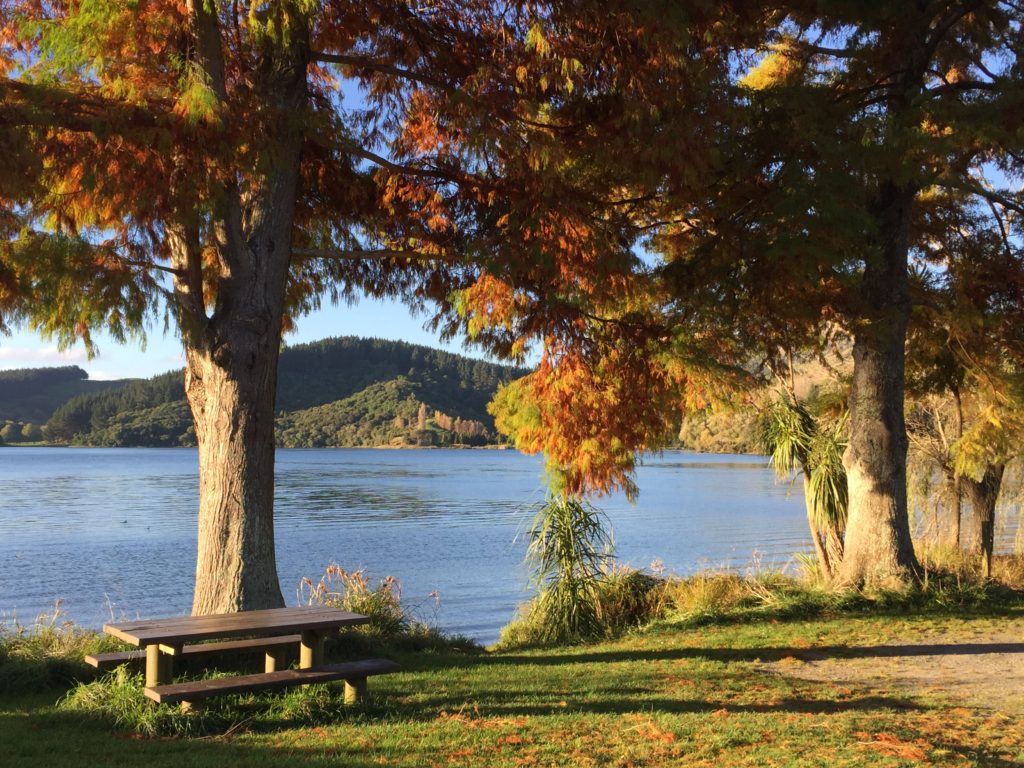
CON: Tight quarters sometimes
When you reduce your living space you squeeze yourselves into less personal space too. At times this has been really challenging with four of us in 20 sqm and, when it’s raining or stormy outside, you feel even fewer options are available to you so being able to calmly state your needs to each other and know how to soothe yourself is critical.
I’ve found sensory integration music or podcasts very helpful to listen to during tasks like washing the dishes as it feels like you’re elsewhere for that time.
Having your own chill space is important too so you can be alone, even if not far from others.
Living out of the bus is helpful too so we take walks, visit the library or explore by bike whenever we want. Having bikes with us was indispensable – extra fitness and freedom in one.
PRO: Less to clean
Oh I LOVE having less to clean! Smaller spaces mean less surface area so 10 minutes and the whole place is visibly tidier.
Of course, it can get messier quicker too but everything has a space to live, and getting it back there takes less time because there’s hardly any distance to cover.
Also, the shower and toilet are together so I can wash that down easily every day – yay, no more multiple bathrooms to clean!
As our boys grow they capably now do jobs we once did, helping to sweep the floors, do the washing and empty bins, which reduces the daily workload on us and builds their skills.
CON: Washing convenience
We don’t have a washing machine on board. Some big rigs do and that must be so handy but we don’t so that means we rely on laundromats as we travel.
The task of finding one that isn’t crazy busy, dirty or that will just work can be annoying.
In summer months you can dry wet washing inside your motor home or on lines outside where this is possible but in winter we dry everything at the laundromat too so costs rise.
To make using laundromats easier, have a stash of $1 and $2 coins to take with you. Some places have a local shop that’ll happily give you change for your notes but others not and that’s then another mission.
Some places accept only tokens so you swap your money for those. Only buy the tokens you need at these places as tokens vary in size and value from place to place so there’s no guarantee you’ll get to use them elsewhere.
The Liquid Laundromats are quite common around NZ but you need to buy a blue plastic key and top it up in order to use their machines.
There’s usually a local shop that does this for you via Eftpos. Just don’t lose the key as they aren’t tracked so when it’s lost, any of your credit is lost too.
Work
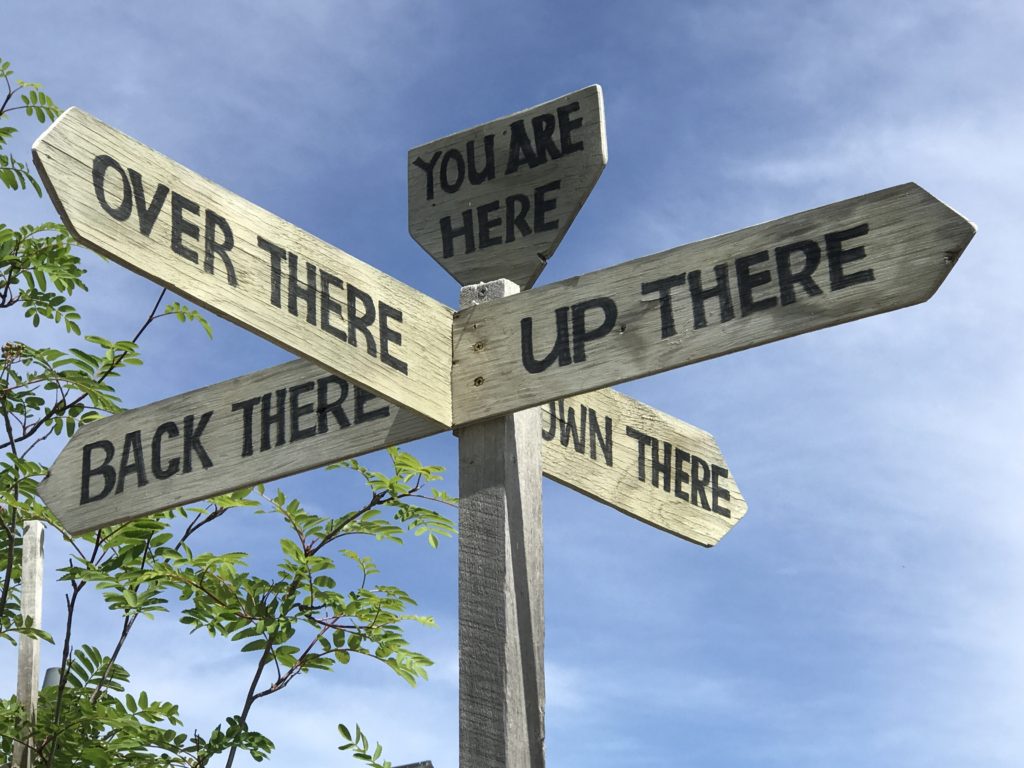
PRO: You can work anywhere or away from your small home
On preparing for our ‘Year in a Bus’, I had thought it would be great to have digitally nomadic jobs and both work from the bus but Neil actually enjoyed getting out to teach in a range of schools around the country as we went and that relieving funded our journey and kept our financial responsibilities sated because our living costs were so much reduced.
It gave him a sense of purpose and gave everyone a mental break from each other during the day.
Living small can be crowded at times and it’s so good to learn what level of self-care each of you needs to keep relationships running smoothly.
CON: Finding work in new places all the time
Before we left home, we made a list of websites where we could find work opportunities around NZ. Most of this work was seasonal however and generally came with a low earning potential for the time spent doing it.
Being teachers, in the end we decided to go without signing up to any agencies or booking work in advance.
This gave us the freedom to enjoy our first summer fully by not working all through it and gave us more choice about where to stop as we didn’t have fixed destinations.
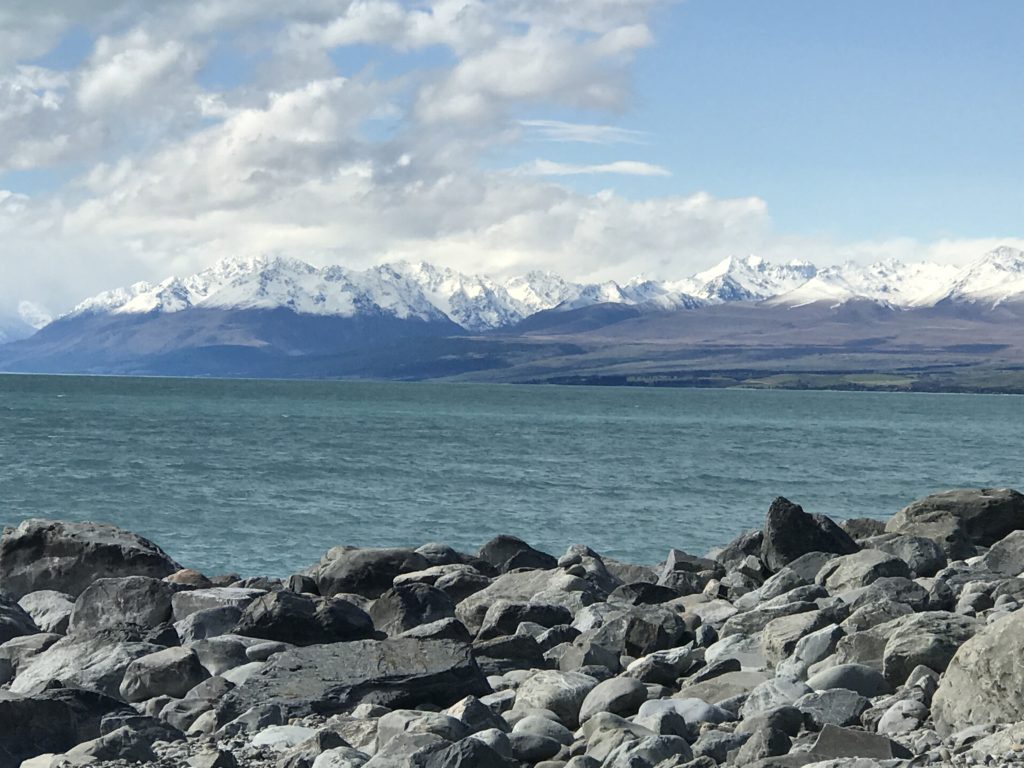
Then, as our money reserves ran low, we signed up to work.
Our first working stint was easy as we passed back through our home town and knew the geography, schools, and people, making it easy to stay busy with teaching work. This changed a bit once we left this base though.
Further south in Wellington, Neil registered with a teaching agency hoping to make getting consistent work easier.
It was in the long run but the paperwork required by them and the time delay from the start of the registration process to actually working were surprisingly all-consuming and frustrating.
Also, we had left our important documents like passports behind but it was exactly these that he needed in order to prove his identity as one of multiple ways with the agency.
Getting them sent down to us took extra time and was a hassle. With hindsight I suggest taking them with you if you’re hitting the road even if you’re not planning to leave the country.
Christchurch was another city we worked a lot in. They didn’t have the same relieving systems we were used to in the North Island so instead of registering with agencies, (most didn’t have branches down there) Neil looked up a range of proximal schools and emailed them saying he was available for work.
He had some success this way and once he had taught in a few schools, he discovered most were using an app called StaffSync to manage their relievers. Once he was added to a least one participating school as a preferred reliever, the jobs rolled in.
StaffSync covers a range of work sectors. It’s an app that offers and fills work positions. It’s a bit like a digital classifieds system and when jobs are posted, you’re notified and able to ‘bid’ for them.
Employers then have the option to choose whoever they’d like to fill the job that day from the list of ‘applicants’ they receive.
StaffSync for work
PRO: Anytime access
A definite pro for mobile working was that this app worked wherever you had an internet connection and that more and more employers are using it to advertise jobs.
A bonus is that it works nationally because in the profile setting you can change your address to reflect your current location and then set the geographical limits you want.
We most often chose a 25kms radius depending on how many jobs were being listed and increased the radius if there were too few options close by, or the competition for roles was high.
CON: Constant checking
The downside to using an app to get work is that you have to be online or watching for when new jobs are posted.
Sometimes relieving work for teachers was listed last minute meaning you’d have to get up early every day you wanted work and wait for new job notifications to come through and quickly hit the accept button for each until you were accepted for one.
Sometimes the competition for jobs was high and positions went to people who schools already knew so having to ‘break-in’ on a local reliever scene sometimes took time.
Some positions are also in tough classes and you can’t usually tell unless you Google the school in advance. However, if you stay for a while in one area you quickly learn where you want to return to!
We think an actively used review system for schools and their relievers built into this app would be awesome. Then recent feedback could help you choose jobs.
Freedom
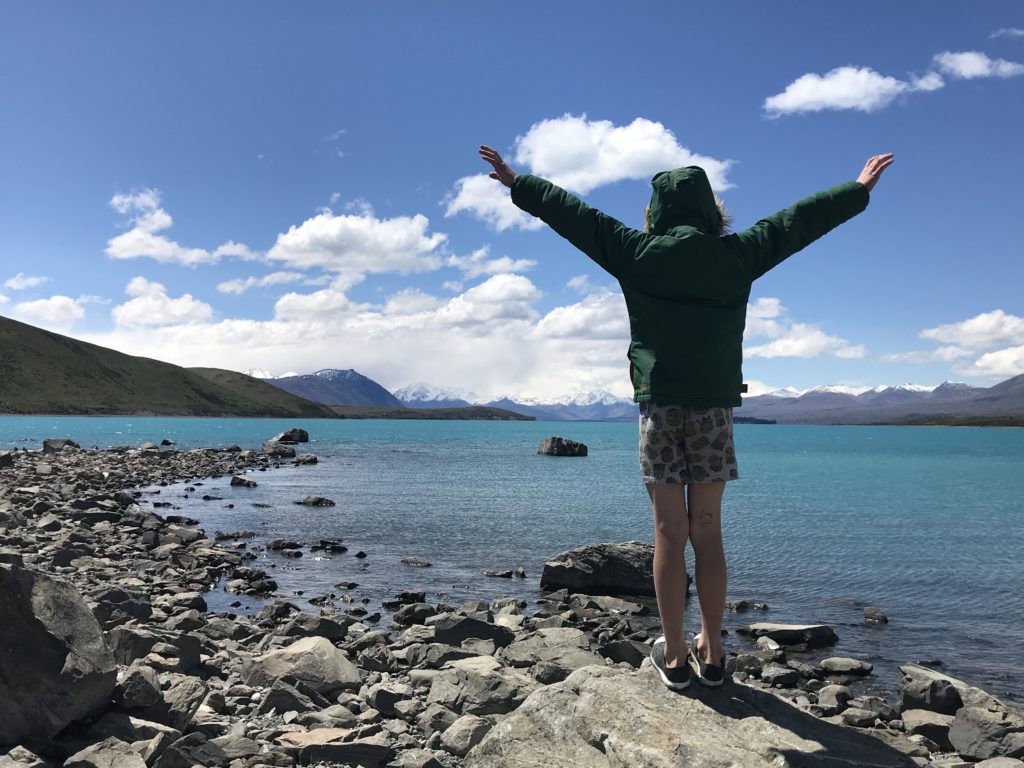
PRO: Go anywhere you want
The freedom you have with a small house on wheels is that you can go anywhere roads can take you. You can park up for days at a time often (check out NZ’s freedom camping rules) and change locations if you don’t like where you ended up.
While you do have to pay fuel costs, you can keep the monthly amount low by moving around slowly and spending more time in your favourite spots.
I love the freedom of this kind of life. I think there’s little that beats being parked up on a beautiful day by the beach and moving on if you want to explore further.
CON: Break downs
A potential downside to living this way is vehicle breakdown or accidents.
During our year touring we had a few minor (fuel related) and one major break down when our injector pump went. We had to be towed from the roadside ($700) and related repairs set us back about $5000 in total. Eek.
Relying on your wits, the limited resources you may be stranded with, and getting access to the people with the skills you need was a big downside to living on the road.
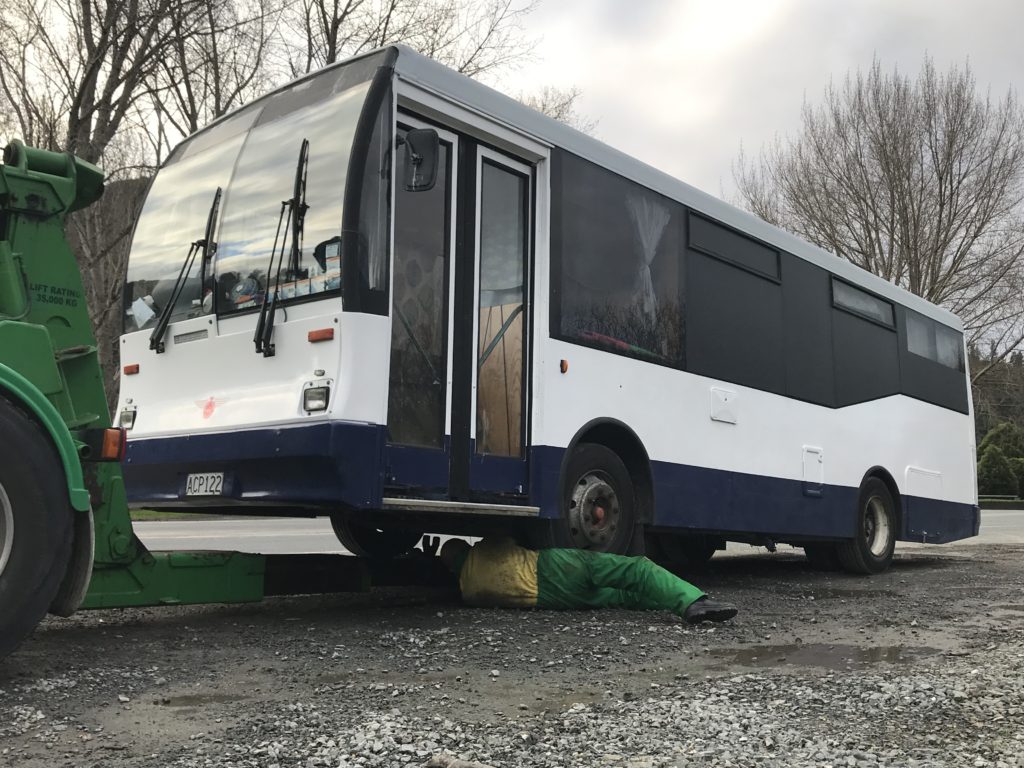
You pretty much have to trust and pay whatever it takes to solve your problem where you are so you can continue travelling.
Once we were ripped off by a mechanic in Whangarei paying $250 for 14L of oil. It didn’t feel good but it got us going again.
That’s life at times but venturing out to beautiful, though isolated places is probably best done if there’s some way to get the help you need should something crop up.
Insurance and roadside assistance aren’t negotiable for this touring family.
Also, if you can, set up a savings fund before you leave to float you in unexpected times like this.
Our injector pump repairs meant that we had to work again sooner than anticipated and that we returned at the end of our year away with some debt to clear.
Every adventure has hiccups and sometimes they become your best-told stories afterward.
I wouldn’t trade our experiences together on the road around NZ for anything and hope this post has given you some honest insight and inspiration for your own journey.
Please click on an image below to pin this post.
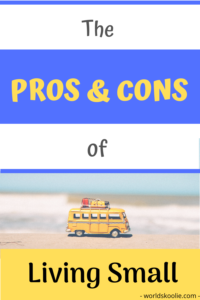
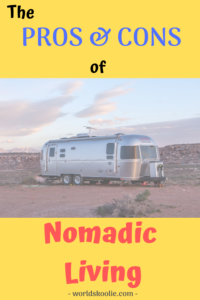
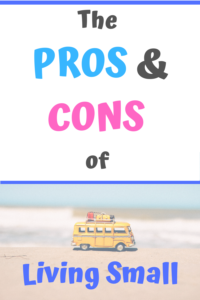
Thanks!

Meagan

